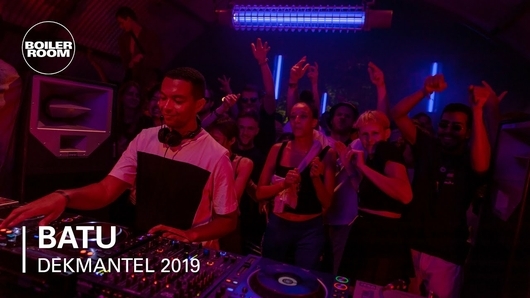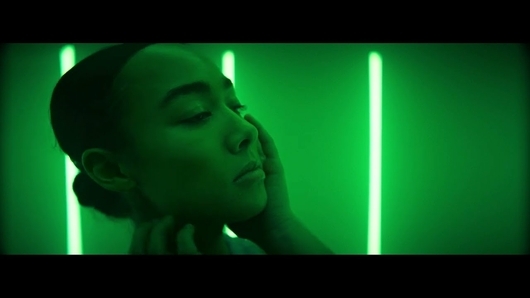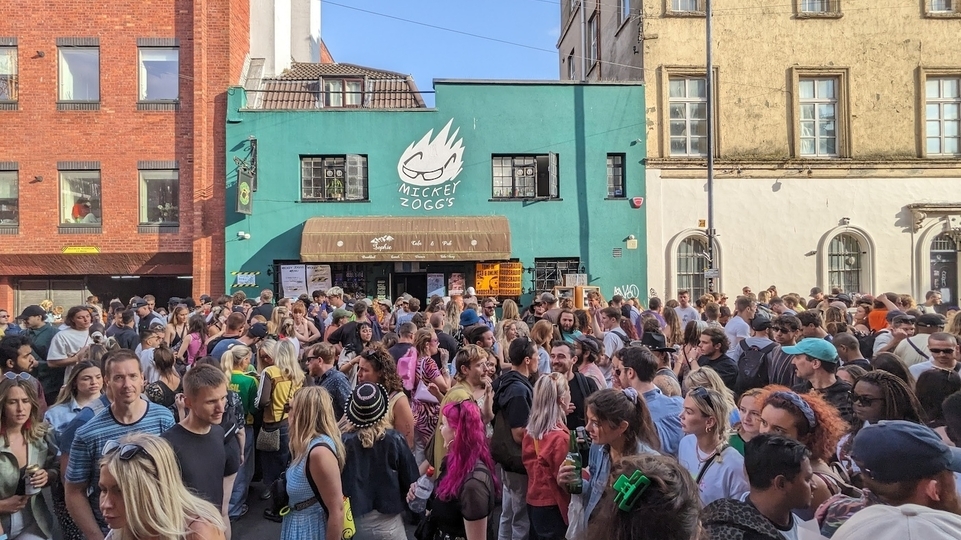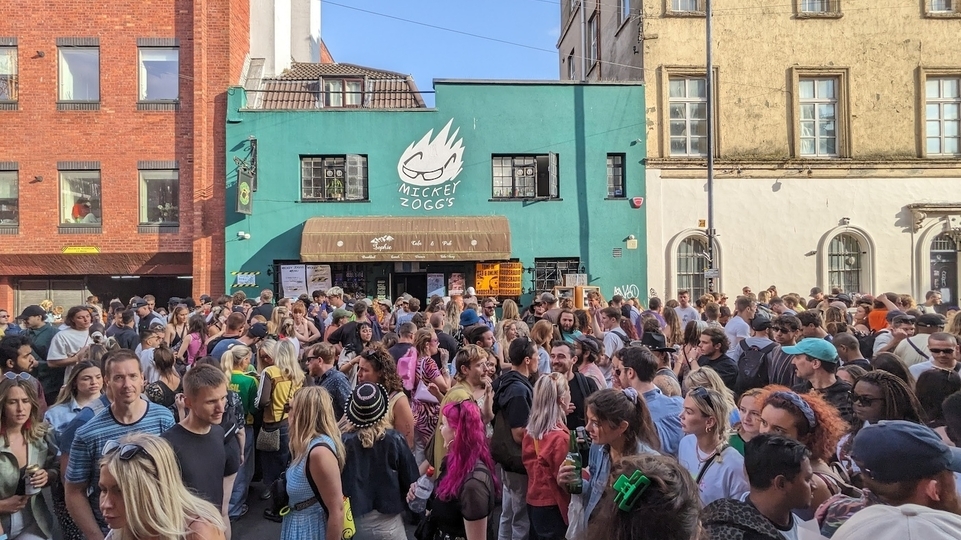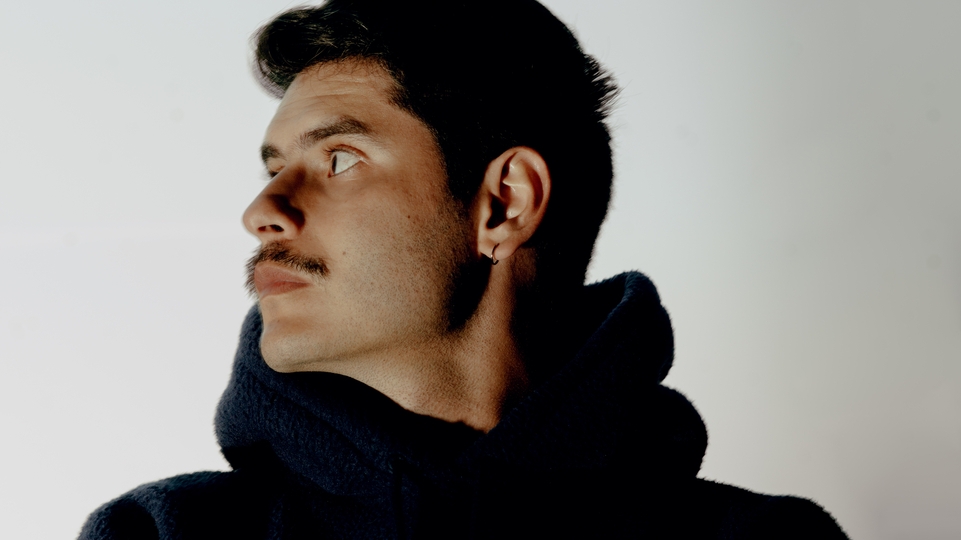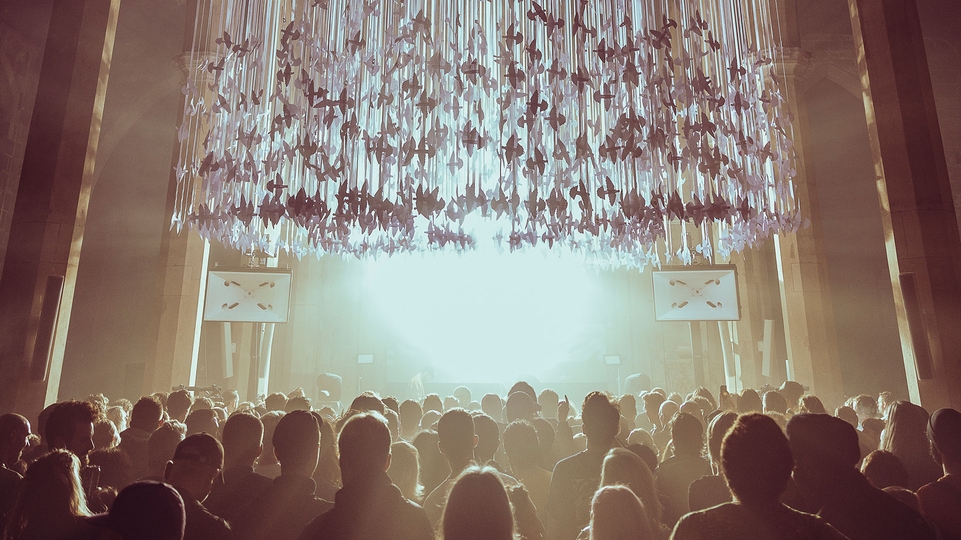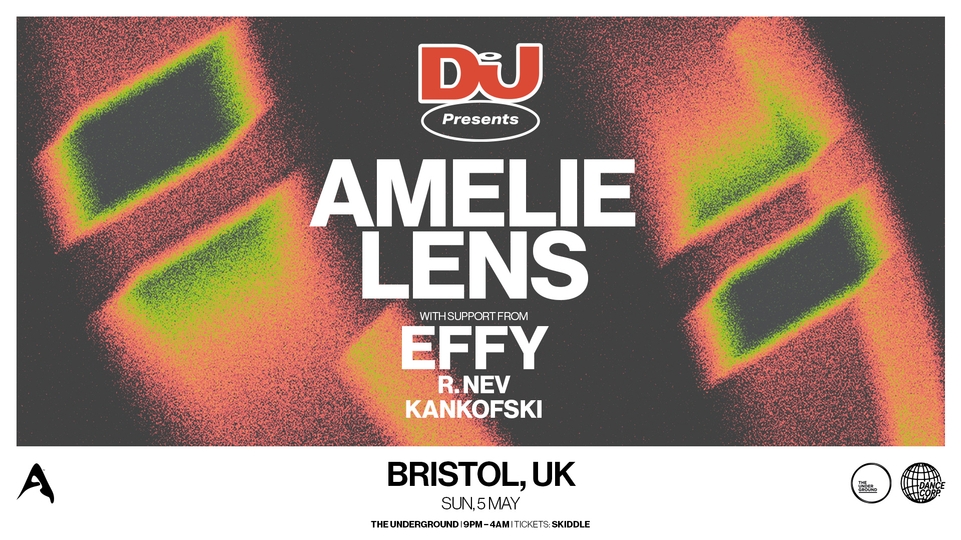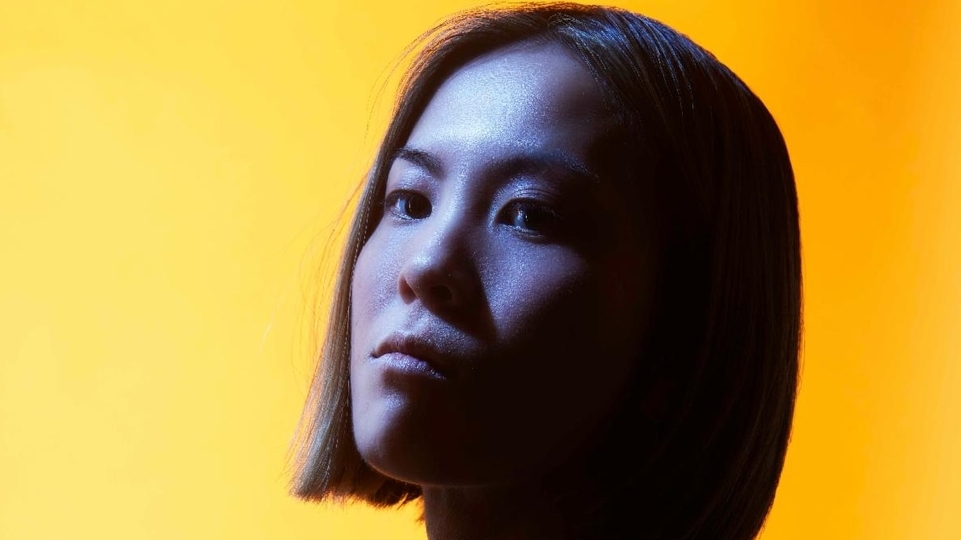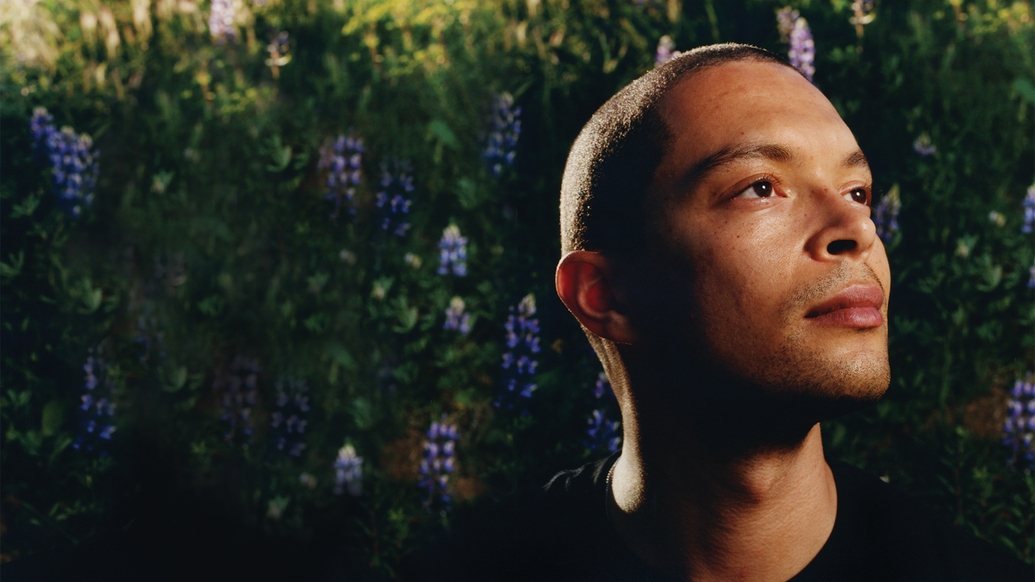
Batu: a long, strange dream
Timedance label boss, innovative producer and a boundary-pushing DJ, Batu was on an upward trajectory — but the pandemic made him question his motivations and examine his history. With his debut album ‘Opal’ marking a bold new chapter in his sound, he talks to Chal Ravens about burnout, reinvention, heritage and contributing to the Bristol scene that nurtured him
On a cool night in upstate New York in September 2019, the floorboards of a wooden hut at Camp Kennybrook are shuddering with bass. Somewhere in the pitch-dark room, Batu is pulling off that weird DJ trick, available only to the rare few and with exactly the right lighting, of reorganising time and space. Walls become whorls, dancers hurtle through dimensions, powered by unending tessellations of drum: funky, gqom, technoid bass. “WHAT IS THIS MUSIC?” one elated dancer is heard shouting into a friend’s ear. The next night, during Powder’s closing set at Sustain-Release, the floorboards cave in.
Earlier that year, Omar McCutcheon was stepping up to the biggest stages of his career. He played a nerve-wracking set in front of 3,000 people at Nuit Sonores, a spiring-time festival in Lyon, but by Glastonbury that June, he was handling a crowd three times the size. His set at Dekmantel raised the roof so definitively that he was pencilled in to headline the next year. And at Sustain-Release, where several hundred of the East Coast's techno fraternity take over a kids’ summer camp for a wild weekend before the fall, Batu was one of a handful of UK artists taking prime positions on the bill, including his Bristol day-one Bruce and drum & bass architect dBridge.
From booming festival sets to trendy underground raves, the legacy of UK soundsystem culture is more audible abroad now than it has been for years: from the melancholy jungle of Ilian Tape and the rave exuberance of Bored Lord and Introspekt, to the broken beats of Brooklyn’s DJ Voices and the Slink crew. With his soundsystem credentials and global ear for new styles and blends, Batu was in a strong spot to take advantage of a UK wave in front of ever-bigger audiences. On the inside, though, he was a Buckaroo mule, just one plastic cowboy hat from collapse. “I think it was gonna end badly, to be honest,” he says of his pre-pandemic schedule. “When so many things are happening so quickly, you get pretty swept up in it. I was on a bit of a bad path, not really aware of where the threshold of ‘too much’ was.”
Success in the dance music industry tends to be measured in headline slots and international bookings, the stuff that reaches bigger audiences and makes the middlemen more money. But in the two years since Covid-19 put the brakes on, many artists have been pointing out the quiet truth that they’d known all along — that success, on those terms, requires a level of determination that lays waste to your actual life. It separates you from the scene you came up in, and turns you into a cortisol-pumped, social media-obsessed, hustle-and-grind droid. Knackered, in other words.
Batu had certainly not intended to be famous. He spent his twenties absorbed in building his label, Timedance, into a cult source of brainy steppers, while running carefully curated parties at unusual local venues. Along the way, he became one of the most talked-about artists in the Bristol scene sometimes called “bass techno”, contemporary with artists like Bruce and Ploy — who both happen to be his former housemates — and labels like Livity Sound and Black Acre.
The success of Timedance quickly made Batu one of the more visible faces on the scene at a time when Bristol couldn't stop making hits, like Ploy’s Timedance cut ‘Ramos’, an epic Thai massage of a club bruiser that reached meme-like dominance in 2018. With a steady run of his own releases and a busy diary of DJ bookings, McCutcheon gained a reputation as a hard worker and unflappable obsessive, a young man busy trying to bend the world to his will. He admits he was “very dogmatic” in his twenties. “I felt like I really had something to prove, I guess. I don’t know who to, particularly — I was just really busy and very protective over what I was trying to build.”
On a sunny March day, McCutcheon is moseying towards Bristol Hippodrome, not far from where he lives in the city centre, to meet us. It doesn’t take long to realise that much has changed for him since that feted set at Camp Kennybrook, both on the surface and much deeper. As we eat brick-sized halloumi wraps in the thrum of Castle Park, in earshot of the Bluetooth speaker sound-clashes of the season, we talk about the upheavals of the past two years. He’s easygoing and soft-spoken, often relating stories in an emotional register (“I felt...”), but too polite to over-share or incriminate.
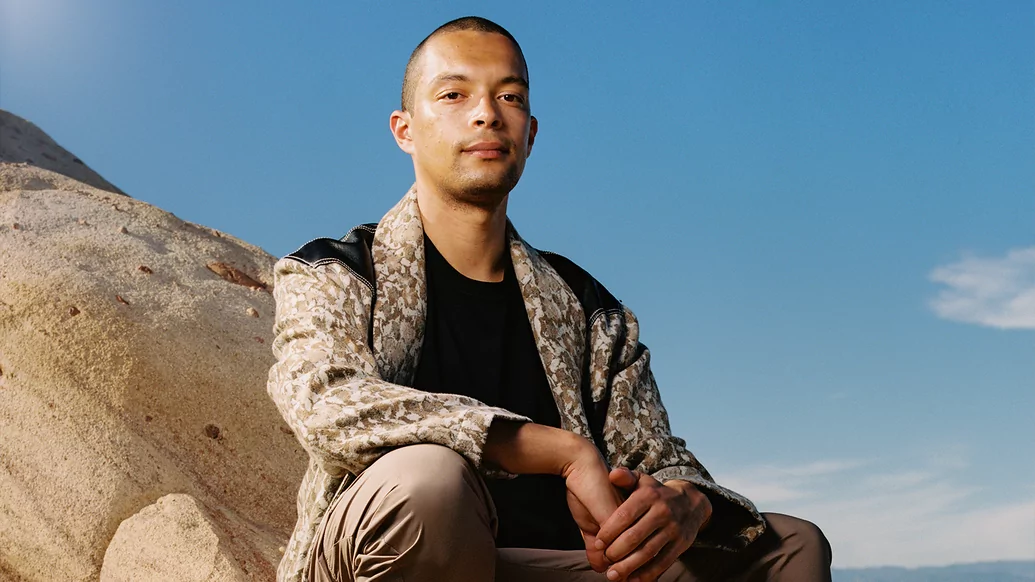
This change is spelled out on ‘Opal’, his debut album and a project intended to reposition him as a fully-formed artist, not just the guy behind your favourite club shellers. Written entirely during lockdown, ‘Opal’ is the product of a period that altered Batu as a person: a journey into the interior, and a reflection of that weird combination of inertia and upheaval that the pandemic created. It’s definitely a lockdown album, one which asks as many questions as it answers through its freeform, quasi-spiritual, often beatless landscapes, which exist in a world far away from battle-ready drum assemblages like 'Murmur' and ‘Monolith’.
McCutcheon was “massively relieved” when lockdown forced him off the road. “I was trying to do too much in 2020, and I was gonna burn out,” he concedes. As well as another summer of big gigs, he was planning his own festival in the Welsh countryside, En Masse, modelled on the small-scale, heads-only atmosphere of Freerotation. But though he was known to the rest of the world as a quintessential Bristol DJ, he was feeling increasingly estranged from the scene he was repping.“I felt self-conscious that I was getting these opportunities when there were lots of other people who deserved them,” he explains. “There was loads of interesting stuff going on that I was missing. Any night of the week, if you go to a certain few pubs, there’s all of this stuff happening, and these people are living it all the time —and I wasn’t doing that.”
If on the surface he seems permanently serene, it doesn’t take much questioning to expose a seam of self-doubt. Years of glowing press coverage and the support of friends and fans have made him wary of praise; he describes his career in the most self-deprecating terms, attributing his success as a DJ to “massive strokes of luck”. Setting ever-higher standards for himself means that writing club tracks has often been “very stressful and difficult. I’ve been massively down on my own music, to be honest,” he reveals, surprisingly early on in the conversation. “I’ve just had this feeling at various points that I can’t contribute anything good enough.”
It’s a funny time for new albums. Two years on from the shock of lockdown, the fruits of those long, empty days have mostly been revealed by the musicians who found themselves kicking around in their home studios, meditating on this shared yet private experience. ‘Opal’ captures something of the ongoing “vibe shift”, as the internet is calling the change of cultural mood that seems afoot.
On social media, adaptogen smoothies and beautifying filters no longer feel right, ousted by photo dumps, red eyes and raw confessions; suddenly, everyone wants to be seen as spontaneous and authentically imperfect. As far as Batu’s music could ever be considered “raw”, ‘Opal’ does at least feel candid: “I felt like I’d done enough music that was relatively austere. Being more vulnerable was something I wanted to explore."
The pandemic was a “massive break and moment of reflection,” he continues. “I thought a lot about what I want, the things that I really wanted to do, but always felt completely intangible in terms of being a producer or a more fully formed artist. And I suddenly had this moment of release.”
‘Opal’ progresses in slow drifts and sudden gusts, like weather fronts colliding. Groaning melodies emerge, almost for the first time in Batu’s catalogue, as if whittled from some prehistoric tusk. On club-adjacent moments like ‘Spectral Hearts’, exotic textures are arranged like a Dutch still life, laden with untouchable riches. Most of it, though, is beatless and contemplative. His exploratory reach sometimes feels more like a hand in the dark, groping for solid structure — although when the tempo gets up, as on the jagged peaks of ‘Convergence’, we’re carried away on a boulder-slide of gravelly drums. Clearly, it’s the work of someone who’s spent a lot of time in their own mind, searching.
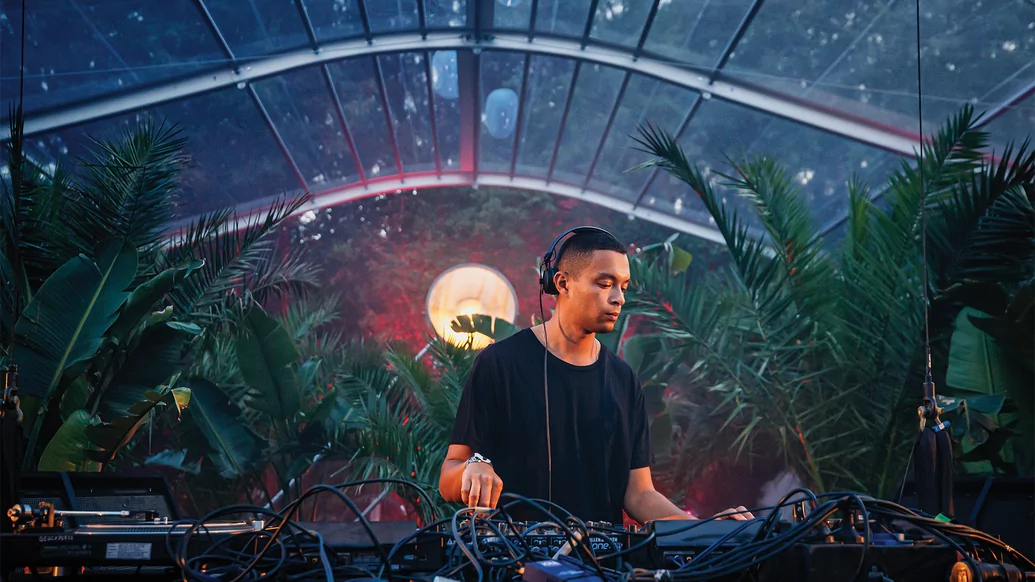
The daily motions of lockdown gave Batu a fresh perspective on his newly shrunken world. Walking the same patch of grass near the Bristol and Bath railway path, he took stock of the seasons changing in tiny increments. “That felt like quite a big thing,” he recalls. “There was a connection with nature, and feeling more affinity with the kind of stillness that nature can give you.”
For the first few months he wrote at his kitchen table, just in headphones, having been forced out of his asbestos-ridden old studio. “At that point I was super regimented, just trying to write music all day, every day.” The album didn’t need to be anything in particular, as far as he was concerned, as long as it felt intuitive and — a word he comes back to several times — heartfelt.
The main elements, which appear in some form on every track, come from a custom-built sample pack made by Bristolian multi-instrumentalist Memotone, whose palette of earthy, resonant sounds are primed to shove us all off the dancefloor and into the elements: dissonant cellos, gongs, screeching bowed cymbals, a Chinese zither and a sarangi, a stubby stringed instrument found across India.
Opals, it’s worth noting, are different from most precious stones. They’re formed not from crystals, but tiny blobs which, together, produce the milky sheen known as opalescence. The fanciest ones flash through the whole rainbow when turned, like a thousand tacky disco lights. No wonder they have so often made us superstitious, imagined as either lucky charms or bringers of misfortune.
That ambivalent magic was captured recently in the Safdie Brothers’ film Uncut Gems, when the tragic jeweller Howard Ratner and basketball villain Kevin Garnett share a rare moment of calm in the movie as they stare into a chunk of 60 million-year-old opal. There’s one of them on the album cover too: a 3D-rendered rock designed by artist Harry Butt, whose cyber-surrealist art direction for Timedance is as meticulously constructed as everything else on the label. Opal is also McCutcheon’s birthstone, although he didn’t know that when he picked the title. Anyway, he’s less interested in rocks-as-in-bling than rocks-as-in-dirt — as in earth, as in deep-time, geology.
His thing for rocks came up during the slow-moving summer of 2020, while his daily loop around the park got him reflecting on his own life cycle. One fundamental question was leading him backwards into the past: who am I? “I think a lot of people felt that in 2020,” he says, laying out his mental mood board for the album. A visit to the craggy scarps of Church Door Cove in Pembrokeshire got him thinking about the endless passage of time, and of his distant ancestors.
If there’s a symbol in nature for that, he explains, it’s obviously rocks. A visual picture started to form, and alongside it an idea about bass and dub as “the foundations of my music, but also my whole identity”. Low frequencies are the longest, travelling through space and time to connect us to something primal; the bass “sits at the bottom, holding that space. That was the framework I started with.”
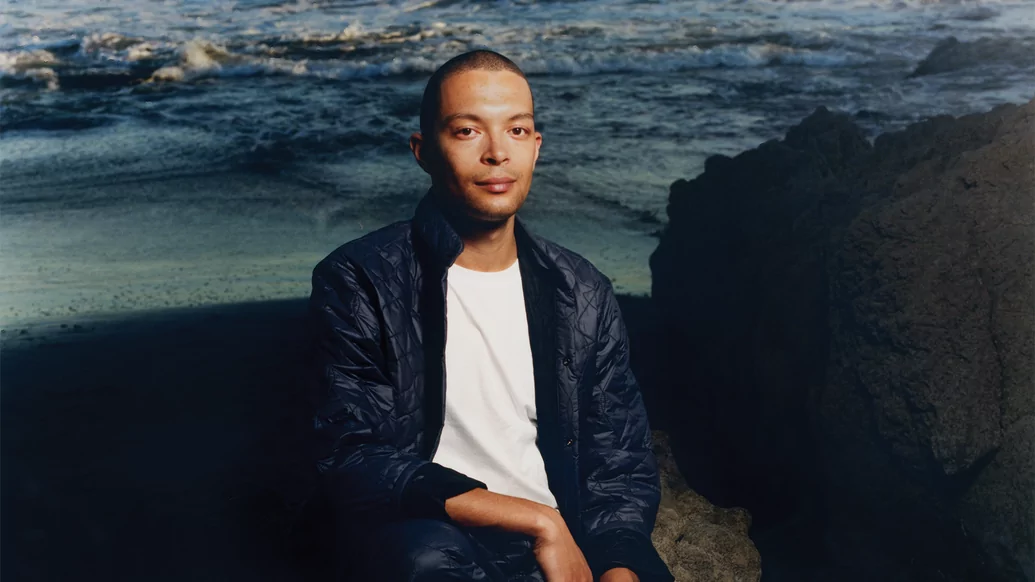
"When is the point where I’m gonna be a good person who builds something more than my own legacy of putting out club records? I can do more than that. I can be better than that."
As he filled in that framework, he considered the possibility that he was piecing his own identity together in the process. For most of the last decade he’d been so preoccupied with building a career that he spent no time looking back. Now here was a chance to make sense of himself. “There were various parts of myself that I felt I’d neglected. Growing up in a very white place in the countryside and not being connected to my Caribbean heritage was something that I started thinking about a lot,” he explains. “If you’re a person of colour but also clearly British, you can potentially have this weird, fractured relationship with your heritage.”
His grandma, who was born in Barbados, died only a couple of weeks before Covid-19 hit. Suddenly his grandad, now in his nineties, became the “last real connection” to that history. Fortunately, he’d recently written a memoir. Reading it gave McCutcheon “this sense of these close connections and that clear heritage, of being able to talk to my grandad about what it was like to come to the UK in 1950 on a boat,” he says. “When my grandma passed, it made me think about how those connections are fading as time passes. Those people are going to leave us.”
McCutcheon was brought up in rural Oxfordshire, the only child of a Bajan-British mum and a dad from Nottingham. With fields all around them, it wasn’t an idyllic upbringing so much as an isolated one. “I never felt like I belonged to the countryside, not in the way other people did,” he remembers. At the time, he wished he’d grown up in the city where he’d been born, Nottingham, among friends and family who were “mixed race like me, but had way more understanding of their heritage and were just... cooler.”
He moved out as soon as he could, studying music production at Bath Spa University — the same course that gave us Lurka, Addison Groove, Vessel and several other electronic musicians who’ve since made a name for themselves — before heading to Bristol to set himself up in the scene. As life got busier, his past receded into the distance; there was too much else to think about. When all of that stopped, thoughts of his childhood and his heritage started to come back to him.
“I don’t feel bad about it. I had a good upbringing and my parents were great and supportive,” he points out. “But I felt like I had to become more in tune. It felt like there were various parts of me that I was kind of ignoring or cheating. So writing the album felt very therapeutic.”
The result, he hopes, is a record that’s free from adult baggage and industry norms, a throwback to his early forays into production as a green-tipped 14-year-old, “when I would just write music following intuition and feelings. I think that got lost a bit in the middle, with the sense of building a career, people’s expectations and working with record labels."
Unveiling such a personal project makes him feel “quite vulnerable,” he says later, over the phone. “I’m sure lots of people aren’t gonna like it. But I actually feel quite confident that I’ve made something that is authentic to me.”
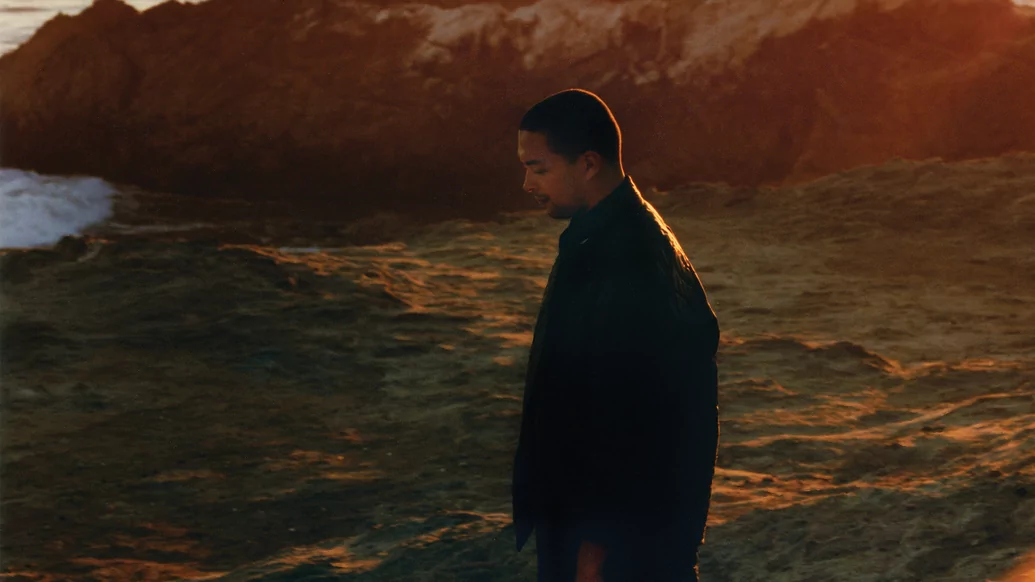
The biggest surprise on ‘Opal’ is a collaboration with Serpentwithfeet, the Brooklyn-based singer with an operatic take on quiet-storm R&B. Inserting their silky falsetto into ‘Solace’ felt like a necessary “moment of clarity” on the otherwise instrumental album, McCutcheon explains. ‘Solace’ was also unveiled with a video that marks his first shot at directing, featuring dancer Rosalie Pearce Bell pulling Matrix-esque bends and fast spins in front of neon lights and tall trees. The indoor-outdoor contrast nods to the album’s positioning between clubland and countryside.
Working with Serpent on their 2021 album ‘DEACON’ had been a learning curve that helped McCutcheon pivot away from the tired conventions of dance production. “There were various points where I did stuff automatically like a club record — like, ‘Right, I’m going to add a saturator on the drum bus now’ — and Serpent was like, "No, it needs to be softer and more heartfelt’. My perception started to shift and I started to think about what it’s like to really write an album with ideas and a purpose."
As lockdown’s long hot summer gave way to an even longer winter, the initial relief of being off the road began to wear thin. He started missing his old life, missing travel, missing being busy. Being more closely connected to seasonal changes triggered a bout of low mood that he’d never felt before: “I guess I attribute that to actually being in one place, without staying up stupidly late or being jet lagged constantly.”
At the same time, he was rethinking his relationship to Bristol, having become “disillusioned” with his place in the city as his own career ramped up. “There’s a lot of really exciting, innovative artists who are doing amazing stuff and I feel like they’re the Bristol scene, they’re the bedrock of it, but I’m someone who gets exported around the world with that tagline,” he says with a gentle laugh, one which he sometimes employs to diffuse more abrasive statements. “I didn’t feel like I deserved that place.”
That winter, he started imagining a different kind of success — not a flashy career up at the top end of big festival bills, but a more rooted, tightly connected relationship with the city that built him. “I’m only here because of the pretty selfless support and encouragement that other people gave me,” he says. He name-checks local dons like Peverelist and Pinch, Idle Hands boss Chris Farrell, and venues like Trinity Centre, a community space home to the long-running soundsystem party Teachings In Dub. There’s also First Light Studio, which McCutcheon opened last year with a cash injection from Dr Martens.
“You’ve got to get out of that headspace where you feel like you’ve achieved everything you’ve done. It’s not that meritocratic,” he says, channelling his usual self-deprecation into a more politicised statement. At some point, he had to reckon with the Jiminy Cricket on his shoulder. “When is the point where I’m gonna be a good person who builds something more than my own legacy of putting out club records? I can do more than that. I can be better than that.”
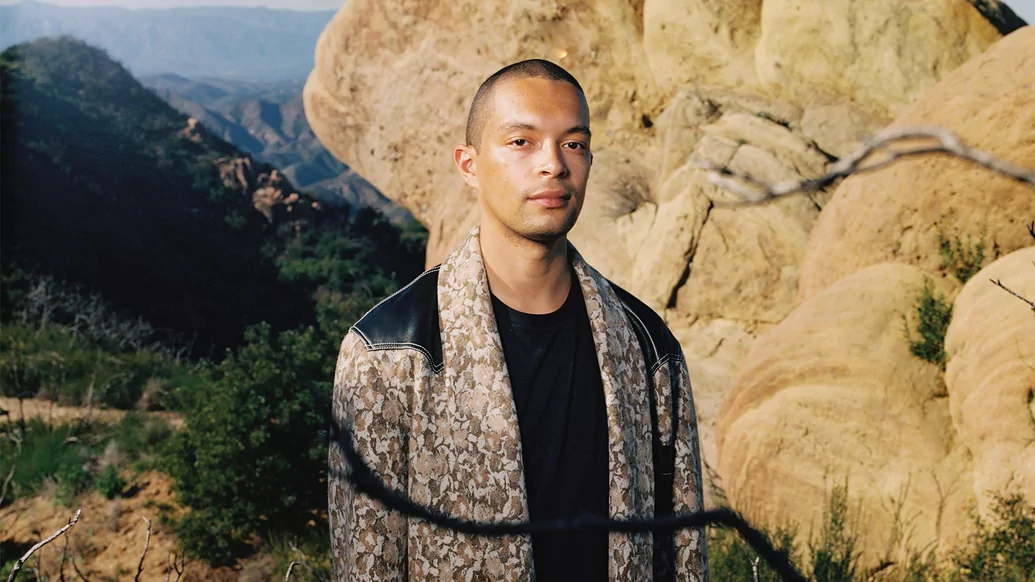
“I want to be confused and surprised and disgusted, and I want all of that to come from new music.”
In September of last year, with restrictions finally easing off after a second rocky summer of cancelled festivals, Batu had another stab at that portal-opening DJ trick at Waterworks, an impressive new one-day festival in West London. Lurking inside a multi-level stage built from neon-trimmed shipping containers, Batu got into a special kind of groove, swerving from dancehall to footwork and taking bigger risks than usual, dragging the crowd along at every chicane.
It wasn’t his first return to the decks, but as one of the most talked-about sets of the day, it marked a turning point. “I wouldn’t have played that slot in that way before the pandemic,” he thinks. “I think I was a bit more daring, playing at 160bpm and jumping through quite a few different things.” Tastes are changing, he points out. “There’s so many young people who’ve started going out who aren’t restricted by the house and techno prism.”
His DJ technique is less about digging and more about the process of slotting unexpected tracks together — a lateral, rather than horizontal approach to playing new music from every corner of the world. That kind of studied eclecticism is the new normal for young DJs who lock into NTS Radio every day instead of Rinse — naturally, that’s where you’ll find his new radio show, recently launched under the whimsical title of A Long Strange Dream, where the industrial chill of Coil might blend into hiccuping batida by Lilocox or zonked house from Ricardo Villalobos. “What I do is connect loads of different stuff and make sense of it. I also have the anxiety that people are gonna be like, ‘It doesn’t make any sense’,” he laughs.
With summer approaching, that postponed headline slot at Dekmantel is back in the diary, presumably circled in red pen this time. He kicked off the year with a tour of the USA, playing on bills with techno big dogs like Adam Beyer and Ben Klock. From a distance, you might think he’s picked up where he left off, jetting towards the mainstream — and that’s actually the point. “I’m very optimistic that what I do, or what people like me do, could be more commercially viable,” he says, pointing to his Waterworks set as proof that people are ready to have their boundaries pushed. “So why limit yourself? Why turn down opportunities?”
Like a magic charm pocketed on a side quest, ‘Opal’ seems to have unlocked a new level. It’s steering McCutcheon through his own vibe shift, away from the self-promoting, entrepreneurial side of DJ culture and into the collective joys of the party and the community. Playing at Terraforma in Italy and Labyrinth in Japan, both festivals with a loose-fitting experimental ethos, made him rethink what a festival could be. “The biggest thing is when people feel like they’re participants and not customers. In the UK, I think we’re quite bad at that. It feels like a very top-down thing. ”
With that in mind, he’s letting go of control — for example, by handing the organisation of En Masse over to the experts. The rebooted vision for the festival, now spread across venues in the city, is simply to shine a light on what’s already happening and the kind of talent that lurks just beyond the media gaze. That and, he laughs, “I don’t have to work out how many portaloos we need.”
One person’s quarter-life crisis is another’s Saturn return— that moment when the wise, authoritarian planet returns to the same patch of the night sky as it was in when you were born. Wisdom supposedly ensues. Whatever, but plenty of people are familiar with the sudden feeling that the hopes and dreams of their twenties feel wrong, like an outfit that no longer fits. The next phase for McCutcheon is less about striving, more about being. “I have less pressure on myself now,” he notes. “Other people’s expectations, or what I thought people wanted, used to play on my mind a lot more.”
The only dream for the future is “to be like, ‘Fuck — I’m so out of touch’. I want to be confused and surprised and disgusted, and I want all of that to come from new music.”

